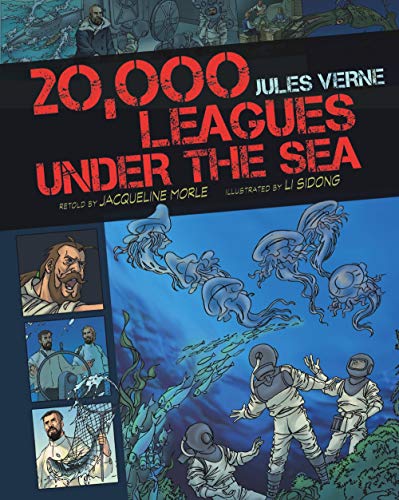Jules Verne
A Floating City
language
(@AnnieRoseBooks April 7, 2015)
On the 18th of March, 1867, I arrived at Liverpool, intending to take a berth simply as an amateur traveller on board the "Great Eastern," which in a few days was to sail for New York. I had sometimes thought of paying a visit to North America, and was now tempted to cross the Atlantic on board this gigantic boat. First of all the "Great Eastern," then the country celebrated by Cooper.
This steam–ship is indeed a masterpiece of naval construction; more than a vessel, it is a floating city, part of the country, detached from English soil, which after having crossed the sea, unites itself to the American Continent. I pictured to myself this enormous bulk borne on the waves, her defiant struggle with the wind, her boldness before the powerless sea, her indifference to the billows, her stability in the midst of that element which tosses "Warriors" and "Solferinos" like ship's boats. But my imagination carried me no farther; all these things I did indeed see during the passage, and many others which do not exclusively belong to the maritime domain. If the "Great Eastern" is not merely a nautical engine, but rather a microcosm, and carries a small world with it, an observer will not be astonished to meet here, as on a larger theatre, all the instincts, follies, and passions of human nature.
This steam–ship is indeed a masterpiece of naval construction; more than a vessel, it is a floating city, part of the country, detached from English soil, which after having crossed the sea, unites itself to the American Continent. I pictured to myself this enormous bulk borne on the waves, her defiant struggle with the wind, her boldness before the powerless sea, her indifference to the billows, her stability in the midst of that element which tosses "Warriors" and "Solferinos" like ship's boats. But my imagination carried me no farther; all these things I did indeed see during the passage, and many others which do not exclusively belong to the maritime domain. If the "Great Eastern" is not merely a nautical engine, but rather a microcosm, and carries a small world with it, an observer will not be astonished to meet here, as on a larger theatre, all the instincts, follies, and passions of human nature.
Enjoy reading A Floating City? You may also like these books
-
X

Jules Verne
Journey to the Center of the Earth
Paperback (CreateSpace Independent Publishing Platform Nov. 6, 2018) -

Jules Verne
Twenty Thousand Leagues Under the Sea, The Mysterious Island, Journey to the Center of the Earth, Around the World in Eighty Days
Hardcover (Barnes & Noble Inc ) -
Z+

Jules Verne
Twenty Thousand Leagues Under the Sea
Paperback (CreateSpace Independent Publishing Platform March 1, 2019) -

Jules Verne
The Best of Jules Verne: Twenty Thousand Leagues Under the Sea, Around the World in Eighty Days, Journey to the Center of the Earth, and The Mysterious Island
language (Open Road Media Sci-Fi & Fantasy June 14, 2016) -

Jules Verne
20,000 Leagues Under the Sea: The Young Collector's Illustrated Classics/Ages 8-12
Hardcover (Kidsbooks Jan. 1, 1995) -
Z+

Jules Verne
Two Years' Vacation
Paperback (CreateSpace Independent Publishing Platform April 3, 2013) -
W

Jules Verne
Five Weeks in a Balloon - Large Print
Paperback (CreateSpace Independent Publishing Platform Feb. 17, 2018)











